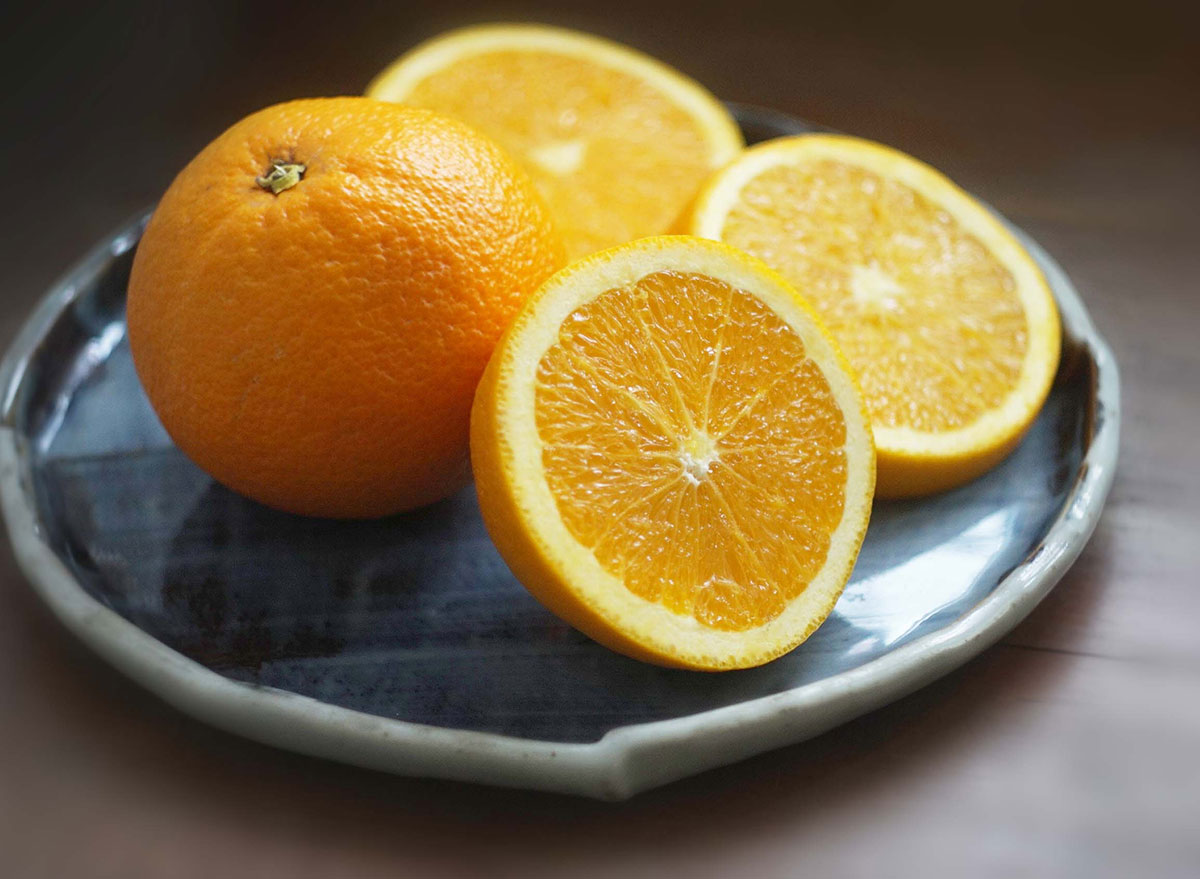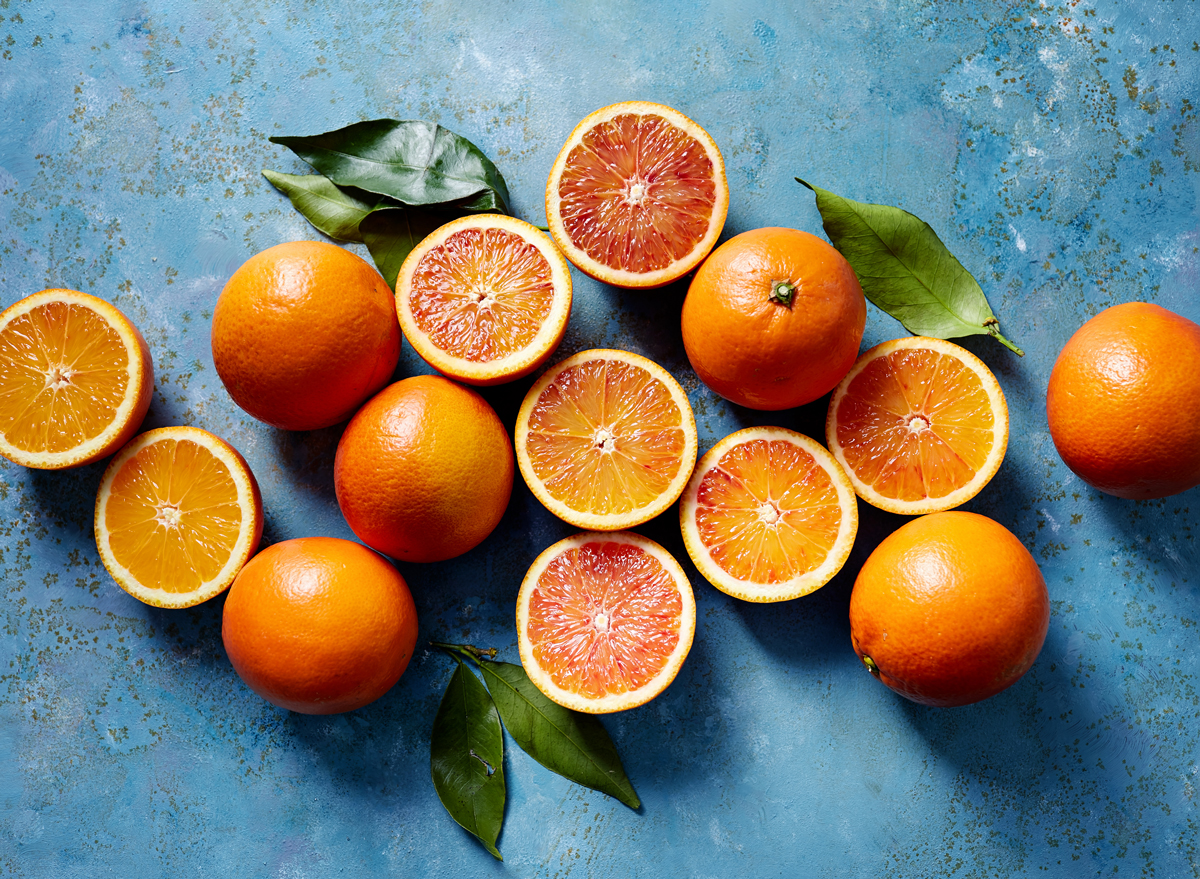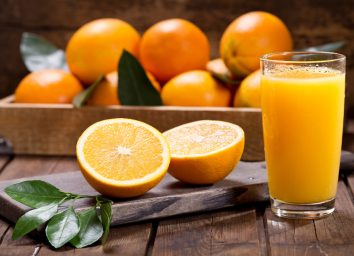One Major Effect of Eating Oranges, New Study Says

Sure, eating more fruits and vegetables can do wonders for your health and wellbeing. Yet according to the latest research from the American Academy of Neurology, adding even a small serving of an orange (or green, yellow, or blue) food in your diet each day may help keep your brain young.
Since previous studies have concluded that flavonoids—a large group of naturally occurring compounds found in plants that act as powerful antioxidant agents—can slow down or prevent mental decline, medical researchers from Harvard University decided to examine the link between long-term dietary flavonoids and brain health.
The team analyzed the data of 49,493 women (with an average age of 48) and 27,842 men (with an average age of 51) that was compiled over a 20-year period. Throughout the trial, the participants were asked to complete questionnaires about the meals they consumed, along with assessing their own memory skills.
And here’s what they discovered: Even after certain health-related factors (such as age and total caloric intake) were taken into consideration, the adults who ate the largest quantities of flavonoid-rich foods—which amounted to an average of 600 milligrams a day—showed a 20% reduced risk of cognitive decline. (For reference, 100 grams or roughly one-half cup of strawberries contain 180 milligrams of flavonoids.)

Then, the researchers took this information one step further and studied the different flavonoids—two of which stood out. Foods that contain flavones, including oranges (as well as orange vegetables, yellow fruits, and yellow vegetables) were linked with a 38% decreased risk of cognitive impairment—a reduction that equates to being three to four years younger!—while foods with anthocyanins (red, purple, and blue foods, such as cherries and blueberries) cut the risk by 24%.
Plus, placing a little color on your plate or in your glass can make a big impact since investigators found that adults who consumed an average of at least half a serving per day of these powerful plant foods showed the greatest results. These findings were published in the online issue of the journal Neurology.
RELATED: Why You Need More Antioxidants In Your Diet—And How To Eat More Of Them
“I’m really not surprised, and I’m happy that there’s more research to show that eating a flavonoid-rich diet may help keep our minds sharp as we age,” says Amy Gorin, MS, RDN, a plant-based registered dietitian and owner of Plant-Based Eats in Stamford, CT.
If you’re trying to incorporate more oranges into your day, consider tossing slices of this citrus fruit into a salad, drinking freshly squeezed orange juice, or making a Blood Orange Beet Smoothie.

If you’re a blueberry lover, Gorin advises opting for the wild kind. “Not only do wild blueberries have two times more health-helping antioxidants than conventional blueberries, but a study published in the European Journal of Nutrition showed that older adults who added wild blueberries to their daily diet for three months made fewer mistakes in memory tests,” she explains. Her two favorite ways to eat wild blueberries: “Tossing a scoop into a Greek yogurt parfait and in a batch of pancakes.”
Also, there’s no time like the present to eat more colorful foods found in nature. “It’s never too late to start, because we saw those protective relationships whether people were consuming the flavonoids in their diet 20 years ago, or if they started incorporating them more recently,” said study author Walter Willett, MD, DrPH, professor of epidemiology and nutrition at Harvard, in a press release.
For more healthy living news delivered straight to your inbox, sign up for our newsletter!








